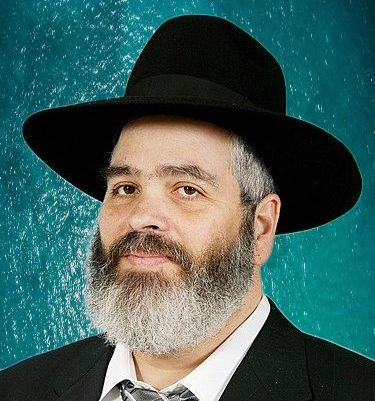| |
NEWS
This
Google Custom Search looks only in this website.
Agudath Israel's Inaugural National Action Summit Inspires, Educates, and Mobilizes
The inaugural Agudah National Action Summit, held December 1 and 2, brought together over 1,500 participants from across the broad spectrum of Torah Jewry under the banner of Agudath Israel of America. The enthusiasm and unity that filled the two-day event underscored the community's drive to strengthen themselves and the broader Klal.
The Summit featured eight specialized tracks, each led by field experts, Gedolim, and Rabbonim. Sessions addressed a wide range of pressing communal realities including Shidduchim, Chinuch, Special Needs, Mental Health, Community Growth, and complex Halachic and Legal Challenges. Attendees gained with both practical strategies and the hashkafic grounding needed to navigate these issues with clarity and purpose.
Keynote Session

Modern Miracles Remind Us of the Ancient Miracles
On the morning of Simchas Torah 5784, Col. Yigal Singer was stationed in the Rei'im area. He saw the attacking terrorists and he directed the opening of an alternate route out of the area, a decision that in retrospect is credited with saving about 2,000 souls.
In the course of the day, Yigal was wounded in his legs near the Urim intersection, which caused him to lose a lot of blood.
"On our way to Ofakim, in armored police vehicle with several other policemen, we encountered a group of terrorists who fired an RPG at our vehicle along with fire from light weapons. This disabled our armored police vehicle. In the course of our battle, I was struck by a bullet that went through both of my legs and then exited. I saw death in front of my eyes," recalls Yigal.

What Did the Maccabees Fight For?
As usual, there are columnists and caricaturists who exploit these days of Chanukah to bash chareidim, demanding that they perform their army obligation, like in the days of the Chashmonaim. If it weren't so sad, it could almost be funny. Isn't there a limit to ignorance and cabbage-headedness?
Therefore, in order to set historic facts straight, allow us to quote from the Book of the Maccabees, written in those very days by a Jew living in those times. These are the distinct words of Matisyohu ben Yochonon, Kohen Godol, father of the Hasmonian family and leader of the rebellion against the Greeks, this is what he said to his sons right before his death.
"We Jews find ourselves at a time of trial and travail. That is why my sons rose up to zealously defend the honor of the Torah of Hashem, our G-d. They risked their very lives to uphold His covenant, remembering the deeds of our ancestors of yore who were the pride and honor for generations to come.

Menorahs Through History
R' Sender from the Warsaw ghetto; the first Jewish soldier in Washington's army' the old-timer who suffered through the bitter Communist exile, the politrok from the Stalin era; the wonderful miracle that happened somewhere in Poland. All of these have one common denominator: the Chanukah lights which burn their way through to a person's core.
Menorahs are known to have unique properties: they have the power of rousing hearts, of igniting the spark of faith, of beaming into them the light of Yiddishkeit. This is a historical voyage of menorahs that illuminated hearts that were distant and revealed the hidden spark, the pintele Yid of every Jewish heart.
Part 2
The Heart That Broke by the Candlelight
(Stalinist Russia)
This story was written with the pen of the one who experienced it.
It had been a grey and dreary day, eroded by the monotony of melancholy. Now it was slowly fading into the blackness of twilight. Gloom descended thickly like a suffocating curtain over the houses and streets. It was a hopeless night, void of festivity, spiritual elevation, or of any trace of the joy of bygone days. The future seemed to have been locked up behind bleak, black, frozen horizons. The cold bit deep, deep into one's marrow and past the bones, sinking its teeth into the heart. It was my first Soviet winter in the Kovne that had once been so vibrantly Jewish.
Pale like the moon, half winking, half flickering, a few lights glowed feebly here and there. Heavy shadows like ghostly doubts leaped crazily on the white carpets of snow, intensifying the fearsomeness of the eerie scene. The town square was deserted, but the voice of a radio announcer could be heard hollowly broadcasting the latest news, quoting numbers and statistics, enthusiastically spouting percentages and figures. The candle flames trembled, as if from fear, but valiantly showed their little lights through the convex windows of the synagogue.
*
We two strode silently through the streets, side by side. Passersby would cross our paths from time to time with muted looks and dumb expressions, their thoughts turned inward. We had only met a few moments earlier and now studied one another curiously.

Rain and Kinneret Watch
by Dei'ah
Vedibur Staff
Our weekly report of the rain and the level of the Kineret
- Winter, 5786.
This Google Custom Search looks only in this website.
* * *
* * *
|




